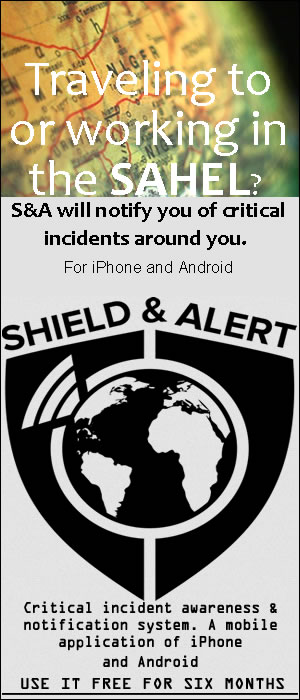Mali’s ruling junta has ordered French broadcasters RFI and France 24 off the air, complaining they had falsely accused the army of committing abuses, it said in a statement issued on Thursday. The government in Bamako “categorically rejects these false accusations against the courageous FAMA (Malian Armed Forces),” spokesman Colonel Abdoulaye Maiga said.
The junta is “initiating proceedings… to suspend broadcasts by RFI and France 24… until further notice,” he said in the statement dated Wednesday. The European Union lashed the ban as “unacceptable” and said the accusations on which it was based were “unfounded.” “By attacking the freedom of the press, the freedom to inform and to be informed, the junta is continuing and confirming that it is pushing ahead regardless,” foreign policy spokeswoman Nabila Massrali said in Brussels.
The French government also condemned the ban, calling it a grave attack on the liberty of the press.
RFI was no longer broadcasting in the conflict-ridden Sahel state on Thursday afternoon, according to AFP reporters, although France 24 remained on air. There is no recent precedent in Mali for major foreign news media to be taken off the air. RFI (Radio France Internationale) and France 24 cover African news extensively and have a strong following in the former French colony. France Medias Monde, the state-owned parent company of RFI and France 24, said on Thursday that it “deplores” the decision to take its broadcasters off the air.
Mali’s press association, La Maison de la Presse, said it “took note” of the ban, and urged media “to work to support the armed and security forces in the noble fight against terrorism”.
The broadcast ban comes as diplomatic relations between Mali and its former colonial power France have plunged to their lowest point in years due to disputes over democracy and the alleged presence of Russia-linked paramilitaries in the country. Mali expelled the French ambassador in January.
– ‘False accusations’ –
The junta, which seized power in August 2020, said there had been “false accusations” in a report early in the week in which RFI aired comments from alleged victims of abuse by the army and shadowy Russian private-security group Wagner. Maiga said Malian news websites, newspapers and its national radio and TV stations were all “banned from rebroadcasting and/or publishing programmes and news articles put out by RFI and France 24.” He compared the French broadcasters to Rwanda’s Radio Mille Collines — a notorious outlet that incited listeners to exterminate minority Tutsis during the 1994 genocide. “Certain allegations, particularly those advanced by RFI, have no other objective than to sow hatred,” he said, adding that this demonstrated the “criminal intent” of some journalists.
Mali’s junta also accused Human Rights Watch (HRW) and Michelle Bachelet, the UN human rights chief, of making false allegations against the government. HRW this week released a report accusing Malian soldiers, as well as jihadists, of a wave of civilian killings. The junta has recently moved towards exerting tighter control over foreign media. In February, it expelled a journalist working for the French magazine Jeune Afrique just a few hours after he arrived in the capital Bamako.
– Troubled country –
An impoverished nation of 21 million people, Mali has over the past decade been wracked by Islamist violence. Swathes of the country are in thrall to myriad rebel groups and militias. Thousands of soldiers and civilians have been killed and hundreds of thousands of people have been forced to flee their homes. Mali’s under-equipped army has also often been accused of committing abuses during the brutal conflict. But the army-dominated interim government, installed after a 2020 military coup, regularly rejects such accusations.
Mauritania also recently accused Malian forces of “recurrent criminal acts” after a series of disappearances of its nationals in Mali raised tensions between the countries. Mali’s government is seeking to ease tensions with its neighbour Mauritania, amid intense diplomatic pressure on the troubled nation. The country is under tough sanctions imposed by the Economic Community of West Africa States (ECOWAS) over delayed elections. The measures include a trade embargo and closed borders. Mali’s ruling military promised to restore civilian rule after seizing power, but it ignored an earlier commitment to ECOWAS to stage elections in February this year.
The junta’s growing friendship with Russia has also worsened friction with France, a traditional ally. President Emmanuel Macron last month announced the impending withdrawal of thousands of troops deployed in Mali under France’s anti-jihadist mission in the Sahel.
afp
![]()




